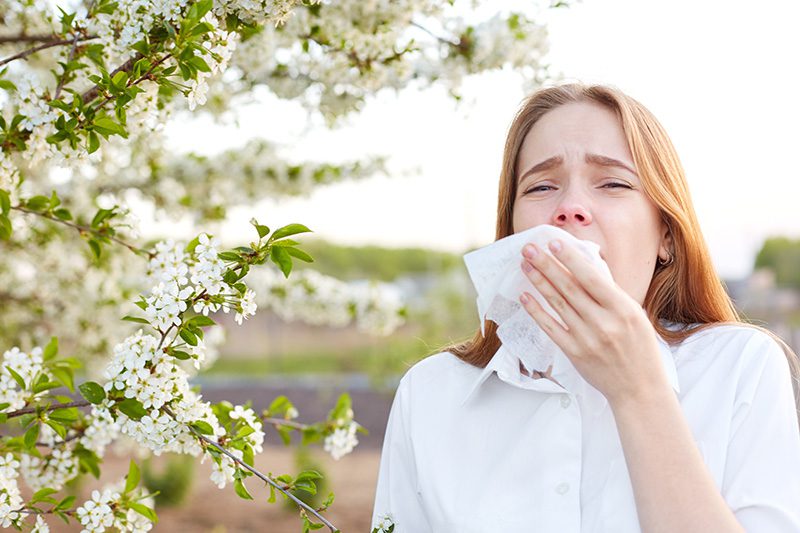By Nirmal Kaur Seehra
2024 UBC PharmD Candidate
Allergic rhinitis is a chronic medical condition that affects over 500 million people globally. Allergy symptoms may include runny nose, sneezing, congestion, and/or itchiness in the eyes, nose, or throat. These symptoms arise when an individual’s immune system responds to foreign substances in the environment, called allergens. These allergens will affect people differently, so an allergen that affects one person may not have any effect on another person. (1)
Some individuals may only experience allergy symptoms between February and October in response to grasses, pollen, weeds, trees, and outdoor moulds. Other people may have allergy symptoms all year round as a result of indoor moulds, pets, dust mites, or workplace allergens. (2)
When your allergy symptoms begin to interfere with school, work, extracurricular activities, or sleep, you should get in touch with your community pharmacist. If you are pregnant or have a child that is two years old or younger who is experiencing these symptoms, make sure you book an appointment with a physician. While you are waiting to see a health professional, ensure that you minimize exposure to any identified allergens as this can help decrease the severity of your symptoms. (2)
Depending on what you are allergic to, you might want to try the following to help manage your symptoms.
For pollen:
- Close the windows in your home and car.
- Wash your hair and clothing after spending time outdoors. (1)
For outdoor moulds:
- Wear a mask and protective eyewear during yard work or when dealing with compost. (1)
For indoor moulds:
- Remove houseplants or keep the soil as dry as possible to prevent the growth of moulds.
- Consider getting a dehumidifier for your home. (1)
For dust mites:
- Use allergen-proof covers on your mattresses and pillows.
- Wash bedding in hot water every two weeks to kill any lingering mites.
- Vacuum carpeted areas daily. (1)
Nasal irrigation with normal saline or distilled water can also help flush out any allergens that might be trapped inside your nose. If you prefer to use tap water, make sure you boil it down and then wait for it to cool prior to use. (1)
As you may already know, several non-prescription allergy medications are available in community pharmacies. Generally, there are three classes of allergy medications: antihistamines, corticosteroid nasal sprays, and decongestants. Despite this, it can still feel overwhelming to select the medication that is most suitable for you. Luckily, your local pharmacist can assess your need for allergy medication and provide you with a recommendation that is safe, effective, and specific to your needs. (1) As of June 1, 2023, this recommendation may even include prescription options.
References
- Kendrick J. e-CPS [Internet]. Ottawa (ON): Canadian Pharmacists Association; c2020 [updated 2022 Mar 16; cited 2023 May 26]. Allergic Rhinitis. Available from: https://www.myrxtx.ca Also available in paper copy from the publisher.
- University of Saskatchewan. medSask Guidelines for Prescribing for Minor Ailments and Patient Self-Care online [database on the Internet]. [updated 2023 April 11; cited 2023 May 26]. Allergic Rhinitis. Available from https://medsask.usask.ca
